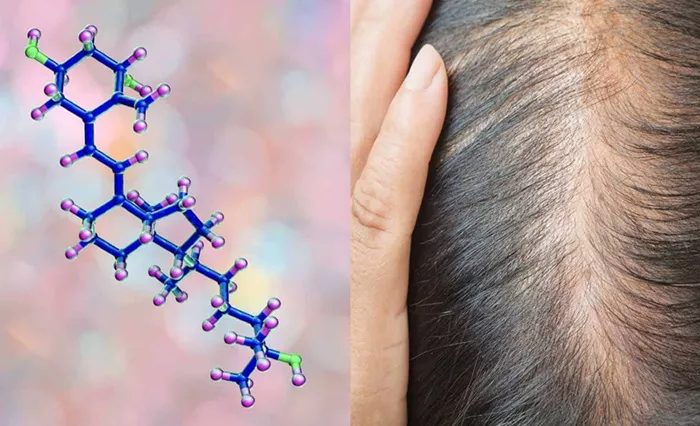In recent years, fresh skincare products have gained significant attention, especially with the rise of the natural beauty movement. Consumers are increasingly turning to products that claim to be made with freshly sourced ingredients, free from preservatives, and offering a more “pure” approach to skincare. But the question remains—are fresh skin care products truly worth the investment?
As the skincare industry evolves, there is a noticeable shift toward products that promise to provide not just beauty benefits but also a more sustainable and eco-conscious approach. Fresh skincare brands often focus on providing customers with organic ingredients that are minimally processed, boasting maximum benefits. But does this approach really translate to better skin health, or is it just another marketing gimmick?
This article will dive into the specifics of fresh skincare products, exploring their benefits, drawbacks, and whether they live up to their promises. By the end, you’ll have a better understanding of whether these products are worth the price and the hype.
What Are Fresh Skin Care Products?
Fresh skincare products are typically formulated with natural, unprocessed ingredients, often sourced directly from farms or local suppliers. Unlike conventional products, which may use synthetic preservatives to prolong shelf life, fresh skincare products emphasize purity, freshness, and minimal processing. These products are often produced in small batches to ensure quality and effectiveness.
The key difference between fresh skincare products and regular skincare products is the lack of chemical preservatives. This absence means that the products have a shorter shelf life. Because they are made with fresh ingredients, they need to be used quickly and stored properly to maintain their efficacy. Brands that market fresh skincare products often emphasize that the ingredients are not sitting on a shelf for long periods of time, offering the consumer a product that is as close to nature as possible.
Fresh skincare is often associated with high-quality organic ingredients such as fruits, herbs, essential oils, and plant-based extracts. These ingredients are believed to be more nourishing and less harsh on the skin compared to synthetic chemicals. But with the emphasis on freshness, there also comes a question: do these products really work better, or are they simply a trend?
The Benefits of Fresh Skin Care Products
One of the main reasons fresh skincare products have garnered attention is due to their perceived health benefits. Fresh products often contain high concentrations of vitamins, antioxidants, and other active compounds derived from natural sources. These ingredients can provide nourishment to the skin in ways that synthetic chemicals might not be able to match.
1. Higher Nutritional Value
Fresh skincare products are often packed with nutrients that can directly benefit the skin. For instance, fresh fruit extracts contain vitamins A, C, and E, which can help reduce signs of aging, boost collagen production, and protect the skin from environmental damage. These nutrients are naturally occurring and highly bioavailable, meaning your skin can absorb them more efficiently.
Fresh ingredients can also have more potent anti-inflammatory effects, making them ideal for individuals with sensitive skin or conditions like eczema and rosacea. The natural compounds in fresh products can help soothe irritation, calm redness, and promote healing in ways that chemical-based products may not.
2. Fewer Artificial Chemicals
In today’s beauty market, many consumers are wary of the long list of synthetic chemicals and preservatives found in traditional skincare products. From parabens to phthalates, these chemicals have been linked to various health concerns, including hormone disruption and allergic reactions. Fresh skincare products, on the other hand, are often free from these harsh additives, offering a more natural alternative.
Choosing fresh skincare products means reducing the risk of irritation or allergic reactions that may occur from using products with artificial chemicals. This makes fresh skincare especially appealing to people with sensitive or reactive skin who are looking for gentler, more natural options.
3. Environmentally Friendly
Fresh skincare products tend to emphasize sustainability. Many fresh skincare brands focus on sourcing ingredients ethically, using organic farming practices, and reducing their environmental footprint. The packaging of fresh products is also often more eco-conscious, using recyclable or biodegradable materials to lessen waste.
Choosing fresh skincare not only benefits your skin but can also support a more sustainable beauty industry. By purchasing products from brands that prioritize environmental responsibility, consumers can help promote more sustainable practices in skincare production and packaging.
Are Fresh Skin Care Products Effective?
The effectiveness of fresh skincare products depends largely on the ingredients used and how they are processed. Because fresh skincare products contain higher concentrations of natural ingredients, they can provide immediate benefits. However, the question of long-term effectiveness remains a topic of debate.
1. Active Ingredients in Fresh Products
Fresh skincare products often contain active ingredients that are known to be beneficial for the skin. Ingredients such as aloe vera, rosehip oil, and lavender extract are commonly found in fresh products and have well-established skincare benefits. These ingredients are known for their ability to hydrate, reduce inflammation, and promote skin regeneration.
However, the challenge lies in the consistency of these benefits. Because fresh skincare products are made in small batches, the potency of the active ingredients may vary slightly between batches. The freshness and quality of the ingredients also depend on how well they are stored, which can affect their efficacy.
2. Shorter Shelf Life
One of the main drawbacks of fresh skincare products is their limited shelf life. Without preservatives, these products must be used quickly to avoid contamination or spoilage. This shorter shelf life can be inconvenient for those who do not use skincare products consistently or for individuals who prefer to stock up in advance.
Additionally, the need for refrigeration or careful storage can make fresh skincare less practical for some users. If the products are not stored properly, they may lose their effectiveness, rendering them less effective over time.
3. Product Stability
Although fresh skincare products are marketed as being more effective due to the use of freshly sourced ingredients, stability is a concern. Natural ingredients can break down or lose potency faster than synthetic ones, especially when exposed to light, air, or temperature fluctuations. This means that fresh products may not deliver the same long-lasting results as those with stabilizing preservatives.
For some individuals, the inconsistency in performance may be frustrating. However, for those who prefer the purity of natural ingredients and are willing to use products more quickly, the benefits of fresh skincare can outweigh these concerns.
Are Fresh Skin Care Products Worth the Cost?
One of the most significant considerations when purchasing fresh skincare products is the price. These products often come with a premium price tag, reflecting the use of high-quality, organic ingredients and the absence of synthetic chemicals. While some may argue that the cost is justified by the quality and benefits of the products, others may question whether the difference in results is worth the extra money.
For those who are new to skincare or have a limited budget, the cost of fresh products might seem prohibitive. However, many consumers are willing to pay more for products they believe are safer, more natural, and better for their skin. If you’re someone who prioritizes organic, eco-friendly beauty products, then investing in fresh skincare may be a worthwhile option.
1. Premium Ingredients and Craftsmanship
Fresh skincare products often include premium ingredients that are sourced from reputable farms and organic growers. These products may be made by hand or undergo small-batch production processes that ensure quality and attention to detail. The craftsmanship involved in creating fresh skincare items can justify the higher price tag.
2. The Experience of Fresh Skincare
For many consumers, using fresh skincare is more than just about the benefits for the skin. It is an experience that connects them to nature and promotes a sense of well-being. The pleasant scents, smooth textures, and visible results can create a luxurious and indulgent skincare routine. For these individuals, the experience of using fresh skincare products might outweigh the financial cost.
Are Fresh Skin Care Products Worth It?
Fresh skincare products offer a unique, natural approach to skincare that appeals to those seeking purity, quality, and sustainability. They provide numerous benefits, such as higher nutritional value, fewer artificial chemicals, and a more eco-conscious production process. However, they also come with challenges, such as a shorter shelf life, potential inconsistencies, and higher costs.
Ultimately, whether fresh skincare products are worth it depends on individual preferences and priorities. If you value natural ingredients, sustainability, and premium quality, fresh skincare may be an excellent choice for you. However, if you’re looking for products that are cost-effective, long-lasting, and highly stable, you may find traditional skincare products to be more suitable.
In the end, the decision comes down to personal choice. As consumers become more discerning about the products they use, fresh skincare offers a promising, albeit niche, alternative in the quest for healthy, glowing skin.
Related Topics































